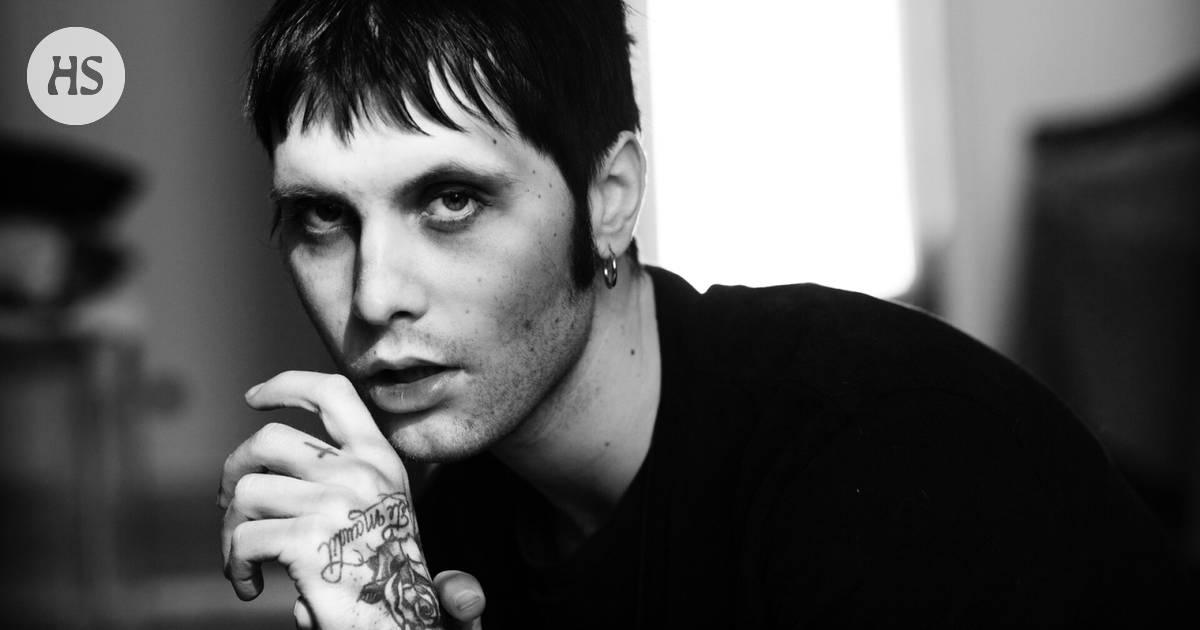Miki Liukkonen wanted to awaken domestic cultural life. Mere literary merits were not enough for him, the writer had to be an “innovator” and a “disturbance”.
Author Miki Liukkonen died on Tuesday 4th July, aged only 33. Kustantamo WSOY told about it in its press release. Liukkonen was born on July 8, 1989. The cause of death has not been made public.
Liukkonen was born in Oulu, where he spent his childhood in the Saarela private home area, and graduated from Madetoja music high school in 2009. Since then, Liukkonen moved to Helsinki.
Even those who hadn’t read his books knew the author: the figure dressed in black and making sharp comments was prominently featured in public, for example, after getting engaged to singer Rita Behm in May 2022. The couple announced their separation only a year later.
In 2009, Liukkonen won the prestigious JH Erko writing competition. According to Raadi, in his poems “grotesques, tiles and surprising language images are mixed with laconic statements”. It was considered exceptional that Liukkonen had already written the poems a few years earlier, when he was only 17 years old.
His his debut collection White poems was published in 2011 and was nominated for the Helsingin Sanomat literary award. His nurse mother died of breast cancer when Miki was 18, and the boy dealt with his mother’s passing in, among other things, the book published in 2012 Elisabeth– in the title poem of the collection. Mom had gotten sick when Miki was 11, and many times it was thought that the cancer had been defeated. The fear of death colored youth.
Liukkonen’s debut novel Children under the sun was published in 2013 and was nominated for the Runeberg Award. A mammoth novel O (2017) achieved several award nominations, including the Finlandia nomination for fiction. HS critic Juhani Karila raised it “Among the most important domestic fiction books of the 2010s”.
During his short life, Liukkonen wrote three poetry collections, five novels and a picture book written for adults. His poems have also been published in anthologies. In his works, he combined the winds of international experimental literature with a virtuoso mastery of the Finnish language – and in public sharply criticized the Finnish literary field for being weak and uninteresting.
In February 2023, he published an update on Instagram intended as a conversation starter, in which he called for more surprise and diverse aesthetics from literature and writers. In Liukkonen’s opinion, just a good work and literary merits are no longer enough to arouse readers’ interest.
“If you want to revive this withered and woolly cultural life, you have to be a reformer, a disruptor and incredibly talented,” Liukkonen told HS at the time.
One a recurring theme in Liukkonen’s works was a difficult paternal relationship. For example, in his great novel Life: Preface (2021) the main character Henri Classic has a challenging relationship with his domineering father, who suffers from a terminal illness. In addition to the standard version, the novel was published as the author’s unabridged work. The work was nominated for the Tulenkantaja and Botnia awards.
In addition to writing, Liukkonen also played guitar and worked as a composer in the band The Scenes, founded in Oulu in 2009. In addition, he drew what was seen at Yle 2021–2022 Miki Liukkonen, bystander – discussion program and Yle’s podcast series Miki Liukkonen’s world.
”
“He seemed to be both unwaveringly sure of his own skills and deeply insecure and sensitive at the same time.”
Mental health problems, anxiety and depression tormented Liukkos repeatedly, and he also talked about them in public. Anxiety started as a little boy. Panic attacks came in high school, a little later an eating disorder, and depression as an adult. Liukkonen also said that he only demands the best from himself as a writer, and that he writes long hours: eight to ten hours a day, six days a week.
In an interview with HS in spring 2019 Miki Liukkonen said he was scared when Master of silence – while writing the novel, he noticed that he was feeling really bad. “I was shocked. Also, the book was dedicated to me. It seemed almost like a testament,” said Liukkonen.
In four months, he had ended up in the hospital’s emergency department eight times, due to drugs and alcohol. He said that drug use became a problem in high school, when he wrote poems at night with the power of red wine.
The comparisons of the early days of Pentti Saarikoski’s career, seen through this, sound more relevant than anyone had intended: Saarikoski’s life was dominated by heavy alcohol consumption, due to which the poet was only 45 years old when he died.
I interviewed Miki Liukko at the Helsinki book fair in the fall of 2021. HS critic Maaria Ylikkanka’s review of his new novel had just come out, and, even though it wasn’t a crushing review, Liukkonen would have liked the criticism to be different. He had already brought this up on social media under the title “Hello Helsingin Sanomat”, and mentioned it on the fair stage as well, behind opaque black sunglasses. He also joked about his glasses in a self-ironic tone – but did not take them off.
Miki Liukko might have been considered arrogant, but when we met face to face it was not in his nature. From the beginning of his career, he seemed to be at the same time unwaveringly confident in his own skills, even his genius, and bottomlessly insecure and sensitive.
You could love him or hate him – but it is certain that with Liukkonen, Finnish literature lost a great writer and a remarkable voice.
Miki Liukkonen’s novel will be published posthumously in September 2023 Guest mode.
